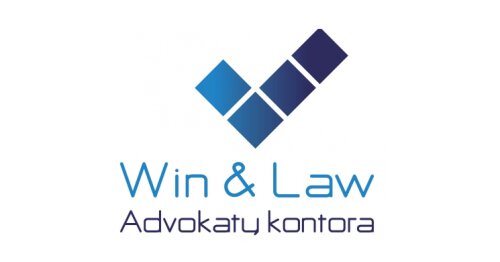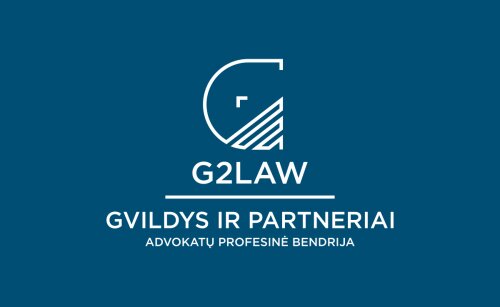Best Project Finance Lawyers in Klaipėda
Share your needs with us, get contacted by law firms.
Free. Takes 2 min.
List of the best lawyers in Klaipėda, Republic of Lithuania
About Project Finance Law in Klaipėda, Republic of Lithuania
Project finance refers to funding large-scale infrastructure or industrial projects through a combination of debt, equity, and other financial instruments. In Klaipėda, a significant port city and economic hub in Lithuania, project finance law plays a vital role in enabling the development of energy, transport, maritime, and industrial projects. This legal field combines aspects of commercial law, contract law, financial regulation, real estate, and public-private partnerships (PPP). Lithuanian law provides a regulated framework for structuring, negotiating, and executing these complex transactions, with local adaptations to European Union directives and standards.
Why You May Need a Lawyer
Project finance transactions involve multiple parties, extensive documentation, and significant capital. Common reasons to seek legal support include:
- Structuring and negotiating project finance agreements
- Ensuring regulatory compliance for licensing and permits
- Managing risks and allocating responsibilities between project sponsors and lenders
- Drafting and reviewing contracts, such as EPC (Engineering, Procurement, Construction) or O&M (Operation and Maintenance) agreements
- Advising on cross-border or foreign investment rules
- Resolving disputes during project development, construction, or operation
- Obtaining legal opinions for financial closure
Having a lawyer experienced in Lithuanian project finance law helps streamline the process, avoid costly mistakes, and protect your interests throughout the project lifecycle.
Local Laws Overview
The legal environment for project finance in Klaipėda is shaped by Lithuanian national laws, EU regulations, and local municipal rules. Key aspects include:
- Company Law - Determines how project companies can be established and operated in Lithuania.
- Securities and Collateral Law - Governs pledges and guarantees often required in project finance structures.
- Public Procurement Law - Relevant for public projects, governing how private entities may participate in government-backed infrastructure developments.
- Environmental Regulations - All major projects must comply with Lithuania's environmental impact assessment and permitting requirements.
- Energy Law - For energy projects, compliance with grid connection, licensing, and renewable incentives is essential.
- Banking and Financial Regulation - Monitored by the Bank of Lithuania, financing arrangements must follow anti-money laundering, transparency, and prudence standards.
- EU Regulations - State aid, competition law, and cross-border financing are influenced by European Commission directives and regulations.
To navigate these laws effectively, local legal assistance is critical, as some procedures and documentation may need to be prepared in Lithuanian and comply with municipal rules specific to Klaipėda.
Frequently Asked Questions
What types of projects typically use project finance in Klaipėda?
Project finance is commonly used for large-scale infrastructure projects such as port terminal developments, wind farms, industrial plants, energy facilities, and logistics parks.
What are the main parties involved in a project finance transaction?
The main parties include the project company (SPV), sponsors or investors, lenders (such as banks or financial institutions), contractors, and government authorities for permits and oversight.
Are there specific licensing requirements for project finance deals?
Yes. Major projects usually require sector-specific permits (such as construction or energy licenses), environmental impact assessments, and compliance with municipal regulations in Klaipėda.
How are risks allocated in project financing contracts?
Risks are typically allocated by contract, with parties assigning construction, operational, market, and regulatory risks according to their ability to manage them efficiently. Legal counsel helps negotiate fair risk distribution.
Is foreign investment allowed in project finance?
Lithuania welcomes foreign investment, and there are no general restrictions regarding foreign ownership of project companies, though some sensitive sectors (such as energy or defense) may have additional rules.
What types of security are commonly required by lenders?
Lenders often require collateral, such as pledges over project assets, shares, bank accounts, contracts, or insurance policies. The type and extent depend on project specifics and lender requirements.
How are public-private partnerships (PPP) regulated in Klaipėda?
PPP projects are governed by national law in Lithuania, which defines the framework for partnerships between government entities and private investors, including procurement, contract terms, and risk allocation.
What are the key steps in arranging project finance?
Typical steps include project feasibility analysis, regulatory review, establishment of a project company, negotiation of financing and security agreements, obtaining permits, and financial closing.
What happens if disputes arise during a project?
Disputes are typically addressed through specific dispute resolution mechanisms detailed in project contracts. These might include mediation, arbitration, or litigation in Lithuanian courts.
Do project documents need to be in Lithuanian?
While some documents between private parties may be in another language, official submissions to authorities and agreements involving Lithuanian governmental bodies must be in Lithuanian or accompanied by certified translations.
Additional Resources
If you are seeking more information or starting a project finance process in Klaipėda, consider the following resources:
- Bank of Lithuania - For financial supervision and banking regulations
- Ministry of Finance of the Republic of Lithuania - Information on PPP and public projects
- Klaipėda City Municipality - Local permits, urban planning, and investment support
- Lithuanian Energy Agency - Guidelines for energy and renewables projects
- Invest Lithuania - National agency supporting foreign investors and major projects
- Lithuanian Bar Association - To find licensed lawyers specializing in project finance
Next Steps
If you need legal assistance in project finance in Klaipėda, follow these steps:
- Gather all relevant information about your intended project, including proposed activities, business partners, and financing needs.
- Identify the main legal questions or challenges you face, such as permits, contracts, or funding structure.
- Consult with a lawyer experienced in project finance and Lithuanian business law, especially with local knowledge of Klaipėda's requirements.
- Prepare a preliminary plan and risk analysis to discuss with your legal counsel.
- Work with your lawyer to review, negotiate, and draft documents, and ensure all regulatory and compliance obligations are met before proceeding with financing or project launch.
- Remain proactive in communications with authorities, partners, and financiers, and keep your legal adviser updated on any developments or issues.
Taking early and informed legal steps can help ensure a smooth and successful project finance experience in Klaipėda, Republic of Lithuania.
Lawzana helps you find the best lawyers and law firms in Klaipėda through a curated and pre-screened list of qualified legal professionals. Our platform offers rankings and detailed profiles of attorneys and law firms, allowing you to compare based on practice areas, including Project Finance, experience, and client feedback.
Each profile includes a description of the firm's areas of practice, client reviews, team members and partners, year of establishment, spoken languages, office locations, contact information, social media presence, and any published articles or resources. Most firms on our platform speak English and are experienced in both local and international legal matters.
Get a quote from top-rated law firms in Klaipėda, Republic of Lithuania — quickly, securely, and without unnecessary hassle.
Disclaimer:
The information provided on this page is for general informational purposes only and does not constitute legal advice. While we strive to ensure the accuracy and relevance of the content, legal information may change over time, and interpretations of the law can vary. You should always consult with a qualified legal professional for advice specific to your situation.
We disclaim all liability for actions taken or not taken based on the content of this page. If you believe any information is incorrect or outdated, please contact us, and we will review and update it where appropriate.













